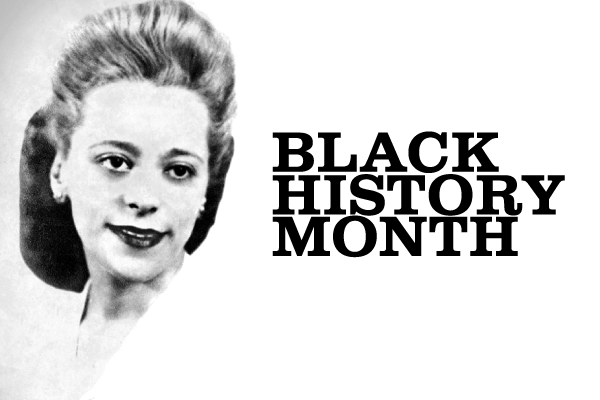
Last year, in honour of Black History Month, we shared with you the story of Mary Ann Shadd Cary, a pioneer of the equality rights movement in Canada. We did that primarily because Black history, especially Black women’s history, has largely been overlooked.
Dr. Audrey T. McCluskey, Professor of African-American and African Diaspora Studies at Indiana University-Bloomington, confirmed this sentiment when we corresponded with her last year.
“Black women’s history has been in the shadows for too long,” wrote Professor McCluskey. “So much more needs to be done to bring this history of struggle, courage, disappointment, and overcoming—continually overcoming—to a broader audience.”
So with those inspirational words in mind, we’d like to shine the spotlight on another brave Black woman. Her name was Viola Desmond – and in 1946, she caused quite a commotion.
Desmond was a Halifax-born Black woman who owned a hair salon. While on her way to Sydney on business, her car broke down in New Glasgow. After checking into a hotel, she decided to catch a movie. When she asked for a main-floor ticket, she was informed that she’d have to sit in the balcony (apparently, this was the theater’s version of making Blacks sit at the back of the bus).1
“But Viola Desmond recognized instantly that she was being denied seating on the basis of her race. She made a spontaneous decision to challenge this racial segregation, walked back inside and took a seat in the partially-filled downstairs portion of the theatre.”2
That’s when the manager was called… and then the police… until finally, Desmond was dragged out of the theater. Oh, and then they threw her in jail for twelve hours.3
Enter the Judge
The Crown attorney must have dug really deep in the law books because they decided to charge Desmond with defrauding the Nova Scotia government. Yep. Fraud!
When Desmond slipped a dollar for her main-floor ticket, 70 cents were returned to her and she was told to sit in the balcony. A main-floor ticket in the “whites only” section would have cost 40 cents, 4 cents of which were tax. The prosecution alleged that Desmond’s actions amounted to trying to defraud the government out of that extra 1 cent in tax.4
Desmond wasn’t informed of her rights and didn’t have an attorney with her the next morning when she entered the court room. She was fined $26.5
The Nova Scotia Association for the Advancement of Coloured People raised money to fight her conviction and her case made it all the way to the Nova Scotia Supreme Court.
Unfortunately, justice didn’t prevail. Desmond lost her case on a technicality.
She may have lost her legal battle, but she lives on a part of our history that deserves be remembered. Our country is often remembered for being a haven for escaped Black slaves. For free Black men and women, it was a place that guaranteed their freedom while the Fugitive Slave Act in the U.S. had been putting their brothers and sisters back into slavery. That’s a part of our legacy that we can be proud of.
But we mustn’t deny the darker parts of our history. Segregation did exist on this side of the border.
Viola Desmond lives on because her story reminds us of the countless Black men and women who were victims of discrimination – and to this day, continue to fight ignorance and prejudice. She lives on because she was a strong, brave, progressive woman who took a stand – who refused to accept the status quo – who refused to be told that she was a second-class citizen.
Viola Desmond is a Canadian hero. Let’s honour her and countless others who fought in the name of equality.
Viola Desmond was post-humously pardoned in 2010.6
[1] Bingham, R., Viola Desmond, the Canadian Encyclopedia
[2] Backhouse, C., Racial Segregation in Canadian Legal History
[3] Bingham, R., Viola Desmond, the Canadian Encyclopedia
[4] Backhouse, C., Racial Segregation in Canadian Legal History
[5] Idem